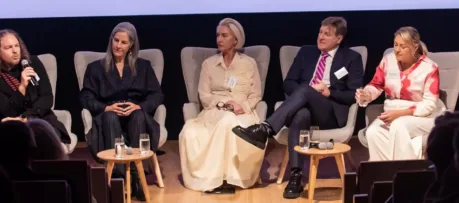The benefits of mediation for family law.
Mediation has in recent times become one of the preferred ways to resolve property and parenting disputes. The court system in Australia is adversarial which means that the party bringing proceedings is required to formally identify the nature of the dispute, and tender evidence to prove their case.
There is a process of discovery, witnesses for the Applicant and Respondent are examined and cross-examined and it can often take a number of years before your case can be determined by the Court. After the trial, there is often an extensive wait for a decision, leaving many litigants in limbo for years.
Being a litigant in the court system can be time consuming, personally exhausting and expensive. Therefore, it is no wonder that mediation is becoming one of the preferred option to resolve property and parenting disputes.
 What is Mediation?
What is Mediation?
Mediation has a long history internationally and domestically, having been used in various forms by religious groups and cultural groups throughout time to resolve disputes. Mediation in a formal, structured sense gathered momentum in the twentieth century and developed into the current form of mediation we have today, whereby a mediator acts as an impartial third party adjudicating disputes between families, businesses, and workplace relations.
The mediator is neutral and does not take sides but allows for each party to put their position forward in a persuasive and considerate manner. Mediation is voluntary and therefore when parties opt in they have the ability to choose a mediator, time and place for the mediation. Mediation is flexible in the way that it is conducted and can allow for litigants to speak directly with each other or via their legal representatives.
Benefits of Mediation
Aside from saving time and money, one of the key benefits to mediation is the ability to maintain control over the outcome. By participating and reaching an agreement at mediation you can have a unique solution that might be not be what a Court may order but nonetheless suits your personal circumstances.
As soon as you file an Application to the Court, you are asking a Judge who does not know you or your situation to make a decision that affects the rest of your life and your children’s lives. Whereas with mediation you have the opportunity to actively participate in the decision making process and achieve a level of satisfaction in actively contributing to the outcome.
Participants say that the process of mediation allowed them to feel empowered and reduced hostility that might otherwise have been present in an adversarial courtroom. Mediation has the potential to preserve personal relationships.
Mediation keeps your dispute private and confidential, whereas Court proceedings are open to the public. The confidentiality of mediation may allow litigants to experience less stress than they might have in a public courtroom, where the history of their dispute is open to listeners.
Mediation is not available in every case for example due to urgency, risk or family violence; however you should consider whether mediation is an option for you as the benefits of early dispute resolution are significant.
If Mediation is something you would like to consider, please contact our friendly staff today and we can talk through the options to resolve your matter without contested court proceedings.





